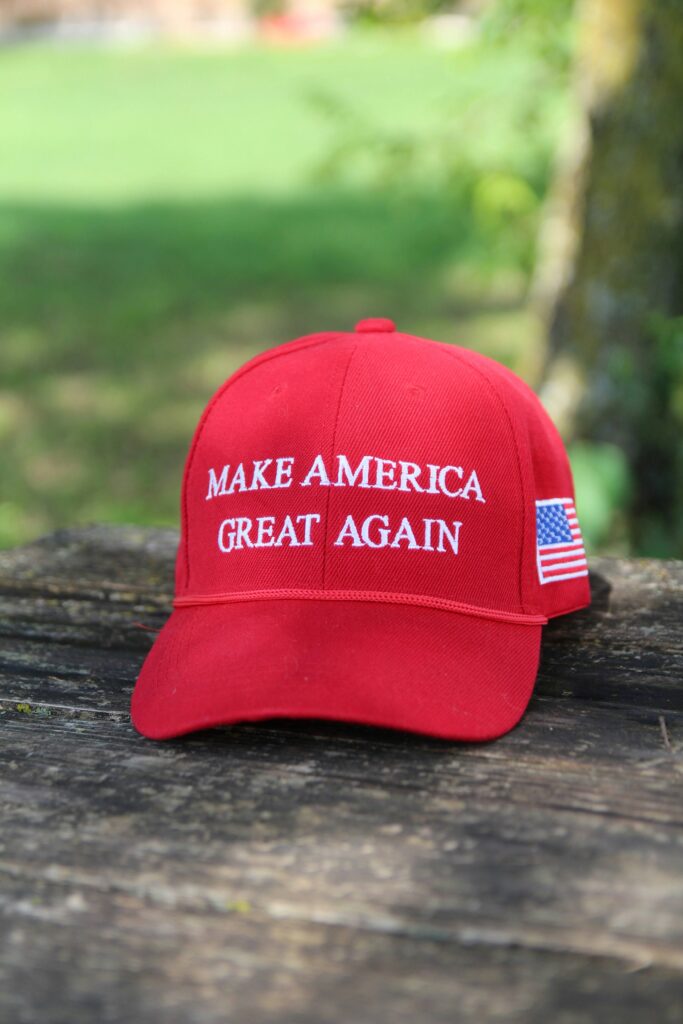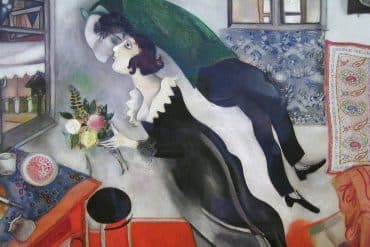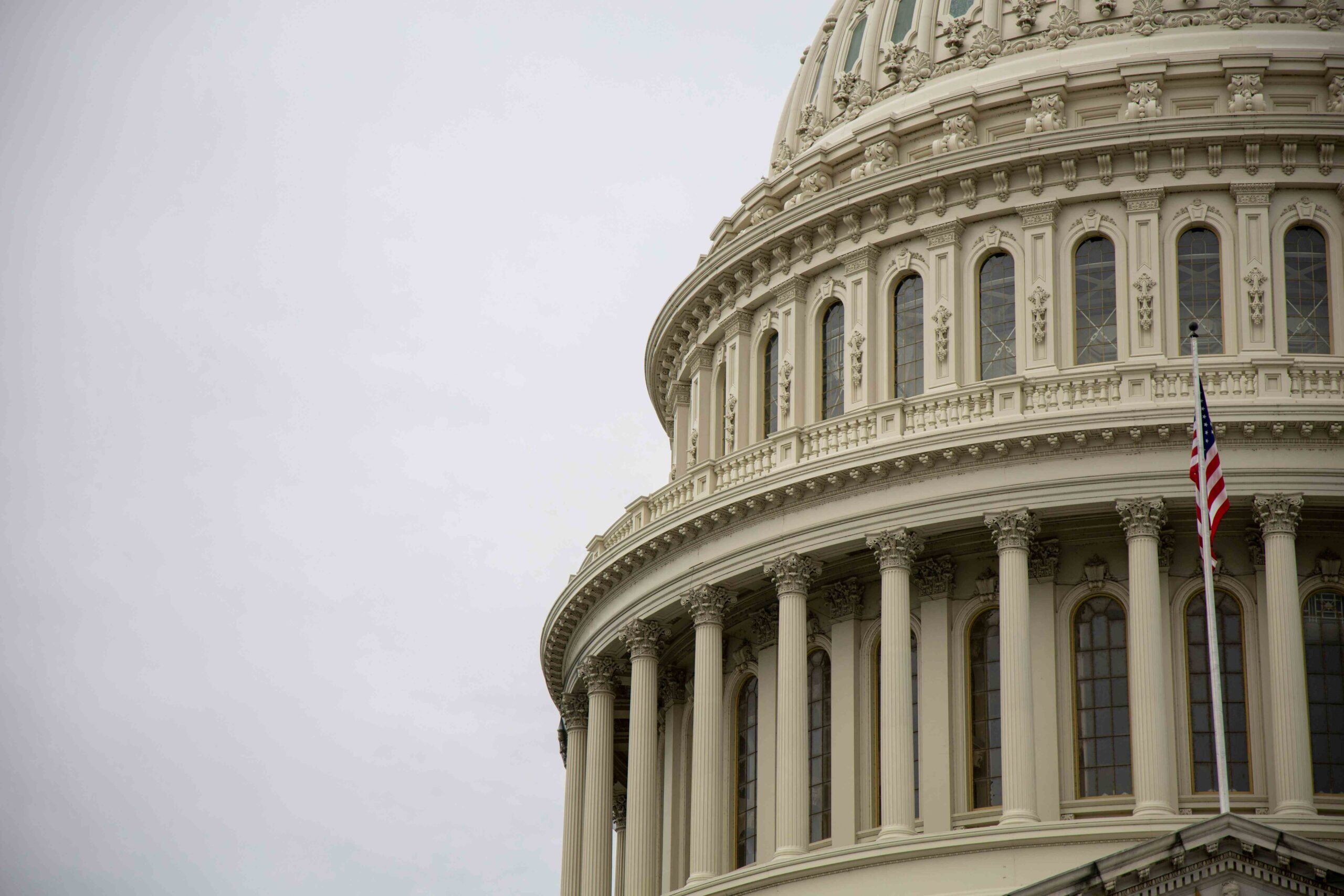Psychologist’s Mind Invaded by Doppelganger on the East End
Artist’s Memo
The author respectfully requests that readers of this personal essay involving a doppelganger from a parallel universe to explain human nature put aside their politics when considering this story about family relationships. It is a piece written with an understanding that terms like “political correctness,” “woke,” and “cancel culture” are being re-evaluated because they are, too often, misused and fail to address the real prejudices and abuses that exist in our society. The essay tells the story of the author’s attempt to bridge the gap in political beliefs between himself and his uncle. It takes place in the recent past, a time, like now, when tense disagreements over politics were common even within close-knit families.
Political disputes in families have always existed. They can become major sources of family conflicts, rather than mere differences in opinion. Reputable news sources have reported that family tansions triggered by political discussions have increased since the Trump administration. Most people, regardless of their political views, are not happy with the effects of this polarization on family life.
The general patterns of this phenomenon are well-established. Differences in political beliefs are closely related to a family member’s educational level and hometown population density. Age also plays a role. Younger, educated individuals living in cities often endorse more progressive political positions compared to older, less formally educated individuals in rural areas.
The essay tells the story of the author’s attempt to bridge the gap in political beliefs between himself and his uncle.
In this essay, the author, a politically progressive psychologist living in the suburbs, decides on a whim to educate his much more conservative uncle on the errors of his political beliefs. His uncle, a retired bus driver with a high school education, lives in a rural area. The author approaches their discussion in a theatrical manner that is non-threatening and respectful. The interaction between the author and his uncle is more complex than usually described in similar writings because of their generational differences. The author is 78 years old, while his uncle is 95. The author is careful not to upset his uncle, who is in delicate health, Importantly, he wants to maintain their long-standing strong relationship while enlightening his uncle about what he believes are mistaken notions.
In the end, the personal growth that emerges through their interaction enables the author to gain a better understanding of himself and his uncle. It reminds us that some of our deepest assumptions based on cultural identification may not be as solid as we think. It is a lesson in humility for all of us, showing how cultural, psychological, and demographic factors interact—a lesson about human nature.

Although I never believed in parallel universes, my attitude has changed now that I’ve met my doppelganger from an alternate reality. The occasion was planned to be a routine pleasure. My wife and I scheduled a low-COVID risk outing with her aunt and uncle, who are in their mid-90’s. We selected an uncrowded East End Long Island, NY restaurant in accordance with their preference. Our aunt and uncle arrived at the restaurant in their own car. Our spry aunt walked in a few minutes before our uncle, who was out looking for parking.
Tolerates No Slackers
Although somewhat short and a bit stiff from arthritis, our uncle’s stride into the restaurant was purposeful. Related through marriage, he is a first-generation Italian-American, a good-hearted, commonsensical, and conscientious guy from a rural hardworking family. He was employed as a long-distance tour bus driver. I have no doubt that his safety record was sterling and that his passengers appreciated his courtesies. Also, I know from his own stories that he possesses a hot-headed, perfectionistic streak. Age has not softened his anger at neighborhood slackers whose shabby home maintenance efforts affect the aesthetics of his daily life.
The Trump baseball cap atop his head indicated that his opinions were as prominent as they ever were. He tends to the conservative side of the political spectrum on social issues and is wary about fiscal waste.
Related through marriage, he is a first-generation Italian-American, a good-hearted, commonsensical, and conscientious guy from a rural hardworking family.
Despite our uncle’s general predilections, his specific beliefs are more complex. I recall when he said, “I voted for Obama. We need a change. George Bush has ruined the economy and fought an unnecessary war.” I answered, “I’m proud of you” and gave him a big hug. “He said, “It’s best for the country.”
As he has aged our uncle has increasingly struggled with accommodation to many of America’s major cultural shifts since the 1960’s. Especially, those changes that he perceives as deviating from traditional Italian-Catholic lifestyles and values. Fortunately, although with lingering anger, he manages to slowly adjust to the realities that have intruded upon his life. Some of these, not only bear the name of social justice, but also have the substance of it. To his great disappointment, after 8 years of Obama’s presidency, our uncle felt like the country was more out of whack than ever. He felt coerced into becoming a marginalized old, white man. It was no surprise that he strongly supported Donald Trump in both elections.
About the Hat
Soon after we sat down for lunch, our uncle removed the hat from his head out of respect for company. After we all shared family updates in good spirits, unable to restrain comment any longer, I said to him, “That’s quite a cap you have!”
He smiled and replied, “A lot of people stop me and ask about it.”
It was clear from his tone that the comments he received were notes of approval. I asked, “Can I take a better look at it?’
With his permission, I reached for the hat and held it gingerly with two hands to examine it. Hovering above the front brim in large white capital letters was the name TRUMP. Atop that name were small red stars and, below, red letters below spelling out, “Make America Great Again.” On the brim, itself, was decorative gold embroidery accompanied by the label 45th President. On the back of the cap, large white capitals spelled out MAGA for all observers. Throughout this inspection process, which lasted no longer than a minute, I felt uncomfortable holding the hat, as if sheer contact with it betrayed what I stood for. Also, I felt the compulsion to gently, but respectfully, tease my uncle about what this hat really represented, I intended to entertain and educate him at the same time.
Trying on the Hat
I asked, “Can I try it on?” “Sure.” he replied. Placing the hat on my head, I, then, engaged in a transgressive public act that violated my own beliefs. I first dismissed my mild anxiety and embarrassment and thoughts that I was toying with the black arts. Then, I wondered what a large portion of my friends and colleagues, who are not Trump fans, would think. It was not a confident version of the Broadway show tune “If They Could See Me Now” that I played in my head.
Considering my background as a longtime clinical psychologist I wasn’t surprised when I asked my wife to snap a picture of me with the hat on. I made sure to poise with a smile, and my right thumb pointed up. But, I was surprised when I started to call out in an increasingly strong voice, “Build the wall!… Lock her up! …Fake news!” At the end of my performance my uncle only smiled and said, “A lot of people admire the hat!”
“Build the wall!… Lock her up! …Fake news!”
I justified my behavior as trying the words on for size as much as the hat to gain a full understanding of the Trump supporter experience. I never wore such a hat before or since or agreed with those falsely premised slogans. However, the truth and surprise of the matter was that although the hat didn’t fit well on me, the excitement that went with expressing taboo words did. Foremost in my mind was the sense of freedom that accompanied the shout-outs. I realized how long I ‘ve ignored the price I paid for years of unspoken words on many subjects.
These were thoughts and feelings that I suppressed to get along, make a living, and be well-liked. It turns out that I have many not so nice things to say that I have never said. I am not proud of myself for thinking them. I am glad I’ve kept them to myself and not lived by their code.
Self-justification for My Misdeeds
In retrospect, I could claim this incident was due a dissociative state caused by mere contact with the hat. This explanation though does not make clinical sense to me, because I am made of stronger stuff. Therefore, I must embrace the alternate explanation that the hat’s true power is in its being a portal between two universes. The hat must bridge both our universe and an alternate right-wing universe. For the brief period I was in contact with that parallel universe, I was overwhelmed by my doppelganger. This alternate identity bearing my genetic heritage and personal experiences, drew very different conclusions from them. Knowing my points of vulnerability, it easily took possession of my body and submerged my personality.
Still, I do wonder what responsibility I bear for this incident. Did I set the stage for Doppelganger transfer and allow consent due to my long, enduring tolerance for opposing viewpoints? Was it my silence about overly restrictive standards for political correctness and cancel culture that so rankled me? And, if my consent was necessary for this possession to take place, what sort of penance and restitution do I owe for this off-kilter moment?
Soon after the event, the answer became clear. Since that time, I feel compelled to show the picture of me with the hat on to family and friends. I ask them to hear my ancient mariner’s sort of tale. Some smile and smile look at me strangely. I guess they don’t believe in doppelgangers, nor do they think that I am a likely candidate for a dissociative state. Or, just maybe, they are afraid it might happen to them. Most have little comment and just change the topic. One advised, “You better not tell this to your Brooklyn friends.”
Who learned What?
And, I wonder, if in his alternate universe my doppelganger was looking to purge himself of any contamination from me that he experienced during his brief transition into my universe. Did he question what the purveyors of his prime sources of news were really selling or whether his political heroes were using his anger for their own power-seeking purposes? Did he try to place himself in the shoes of another? Did he seek to understand his anger at having to share his many blessings with those less fortunate than he?
And, this is what I learned while trying to educate our uncle about what’s true and right in America. I guess I taught him a thing or two!
Credits
Image of a hat by Natilyn Photography for Unsplash
Featured Image by Joshua Sukoff for Unsplash
Learn More
New to autoethnography? Visit What Is Autoethnography? How Can I Learn More? to learn about autoethnographic writing and expressive arts. Interested in contributing? Then, view our editorial board’s What Do Editors Look for When Reviewing Evocative Autoethnographic Work?. Accordingly, check out our Submissions page. View Our Team in order to learn about our editorial board. Please see our Work with Us page to learn about volunteering at The AutoEthnographer. Visit Scholarships to learn about our annual student scholarship competition.
Harvey Lieberman is a New York State clinical psychologist and senior mental health administrator. Dr. Lieberman’s work has been recognized with major national awards from government and professional organizations. He consults internationally and has held visiting professorships at four universities. His essays and social commentary have appeared in well- circulated publications, such as the NY Times, Newsday, and Commonweal. Currently, his private practice focuses on supporting the efforts of individuals who wish to share deeply personal stories in writing with their close relations or larger audiences. He can be emailed at hlieberm1@gmail.com.












